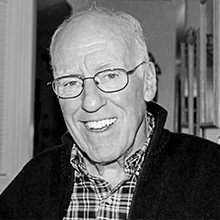
Robert William (Bill) Farrand, a former U.S. ambassador who in retirement became a longtime distinguished senior fellow in George Mason University’s School of Public Policy (now the Schar School of Policy and Government), died on April 26 in Alexandria, Virginia. The cause was Parkinson’s Disease.
Farrand was an instrumental affiliate faculty member of the Peace Operations Policy Program, preparing students and practicing professionals for careers in conflict resolution.
A career Foreign Service officer, Farrand was ambassador to Papua New Guinea, Solomon Islands, and Vanuatu between 1990 and 1993, then served as Deputy High Representative, Bosnia and Herzegovina, from 1997 to 2000.
Farrand cowrote, with former Schar School Peace Operations program director Allison Frendak-Blume, the textbook Reconstruction and Peace Building in the Balkans: The Brcko Experience (2011). The book recapped his efforts in implementing the Dayton Peace Accords in the ethically divided Balkan territory of Brcko in Bosnia and Herzegovina.
“I admired his nonstop energy and commitment to building peace—something he carried over to his teaching in the Peace Operations program here at Mason,” said Distinguished Visiting Professor Richard Kauzlarich, who worked with Farrand when Kauzlarich was U.S. Ambassador to Bosnia and Herzegovina. “We will miss him as a valued friend and colleague.”
Farrand was a member of the Cornwallis Group, the American Academy of Diplomacy, the American Foreign Service Association, and the Association for Diplomatic Studies and Training.
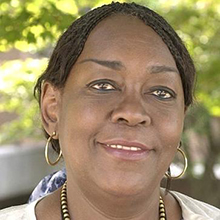
Schar School of Policy and Government Professor Emerita Hazel M. McFerson died February 27, at her home in Silver Spring, Maryland. She was 78.
McFerson began teaching in George Mason University’s Department of Public and International Affairs in 2002 and retired in 2015 shortly after the creation of the Schar School. She had been at Mason in various roles since 1990, including as a professor at the Institute of Conflict Analysis and Resolution (now the Jimmy and Rosalynn Carter School for Peace and Conflict Resolution).
McFerson touched many lives during her career with a passion for teaching that continued beyond the classroom. “The introduction to Critical Race Theory pushed me towards an affinity for social justice,” said Timothy Holman, Jr. (BA, Government and International Politics, ’12), a health equity policy administrator in his hometown of Kansas City, Missouri.
“She not only was a dynamic, witty, instructor, but she was a professor who took an interest in who I was as a person,” he said. “This affirmed me as a first-generation Black college student who found it difficult to identify with the culture of a diverse, albeit predominately white institution. Dr. McFerson pushed me to be excellent in my studies and in my being…I will miss her tremendously and will carry on the spirit of public service [in her honor].”
McFerson is survived by her husband of 51 years, Salvatore Schiavo-Campo, an economist and former professor and chairman of economics at the University of Massachusetts. He is also a former senior official at the World Bank and International Monetary Fund.
Born in Boston on May 15, 1942, McFerson grew up in the Orchard Park Housing Project in Roxbury and turned her humble beginnings into academic inspiration. She studied and taught gender politics, conflict analysis, race and ethnic relations, and governance, among other subjects. Her daughter Mara Schiavocampo, an Emmy-winning television journalist, wrote in a blog post, “Your academic career was all about helping people understand systemic racism way before it became cool.”
McFerson held a PhD in politics from Brandeis University, a master’s degree from the Fletcher School of International Law and Diplomacy, and a bachelor’s degree in sociology from the University of Massachusetts at Boston. She was a Fulbright Scholar at the University of Asia and the Pacific, Manila, Philippines, and was a Fulbright Specialist.
McFerson is survived by her children Rino, Pia, and Mara, seven grandchildren, and a great-grandson.
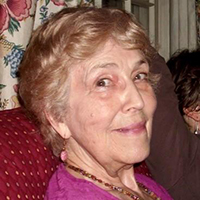
Louise White
Louise Giesey White, a longtime professor in George Mason University’s Department of Public and International Affairs (PIA, now part of the Schar School of Policy and Government), passed away in Darlington, South Carolina, on December 26. Her family announced the cause of death was complications from the novel coronavirus. She was 88.
White was the chair of PIA as well as director of the university’s International Institute from 1991 to 1998. She also served as director of the public administration doctoral program. In 1997, Mason awarded her its first International Educator of the Year award.
“I worked with Louise for two years after I arrived at Mason in 1987,” said Timothy Conlan, professor emeritus at the Schar School. “She was a careful, thoughtful, efficient, and effective chair of our department. Even more important, she was a wonderful human being. The world was a better place because Louise White was a part of it.”
“While I never had the pleasure of working with Dr. White, as a fellow political scientist, I certainly knew of her work, especially her book, Political Analysis: Theory and Practice, which was a standard text for thousands of students over the years,” said Mark J. Rozell, dean of the Schar School. “Louise touched the lives of thousands of students over the years and helped to build Mason into what it is today."
White graduated magna cum laude from Smith College’s Department of Government in 1954, the year she married her husband, the Reverend Edward Allen White. In 1969 as a Danforth Graduate Fellow, White entered American University in 1969 and earned her PhD in political science in 1974. As an expert in international development, she traveled to many countries, serving as a consultant on projects for the World Bank and for USAID.
White is survived by her husband, Ed, her five children, 12 grandchildren, and a great-granddaughter. A memorial service will be planned for later, when friends and family can safely gather. Memorials may be made to Chevy Chase Presbyterian Church to support the ministries that were meaningful to her.
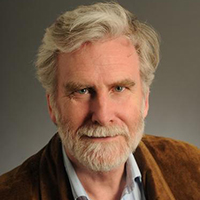
Andrew Hughes Hallett
“So very sorry to hear of Andrew Hughes Hallett’s passing—he was an accomplished economist, with the finest of intellects and, above all, a thoroughly decent man. My thoughts are with all who loved him.” — Nicola Sturgeon, First Minister of Scotland
Andrew Hughes Hallett, Schar School University Professor emeritus of public policy and economics, passed away December 31, 2019, after a seven-year battle with cancer. He was 72.
In addition to a distinguished academic career, Hughes Hallett was a key member of the Scottish independence movement, serving on the Council of Economic Advisers to the government of Scotland and as a commissioner on the Scottish Fiscal Commission. More recently, he sat on the Scottish Growth Commission for the Scottish government, and was an expert advisor to the Kalman Commission of the U.K. government on economic governance.
His work as one of three commissioners on the Scottish Fiscal Commission was instrumental in shaping the controversial Scottish independence debate in 2014. (Based on the economic benefits he predicted in his findings, he was a “yes” vote for independence.)
“If we make it to the day of independence and the beginning of our generation’s work to create a better nation, the name of Andrew Hughes Hallett will be added to the pantheon of those who helped to get us there and make the most of it,” wrote economist and former Member of Scottish Parliament Andrew Wilson in the National (Scotland). “Rest in peace, you beautiful man.”
In recognizing Hughes Hallett’s illustrious career, Schar School dean Mark J. Rozell noted that he was “one of the most cited macroeconomists in the world, whose work intersected theory and practice. Scholars and government officials worldwide consulted his studies. He embodied what the Schar School represents.”
Hughes Hallett joined the faculty of the Schar School at George Mason University in 2007, after teaching stints at the University of Bristol, Erasmus University, Newcastle University, the University of Strathclyde, and Vanderbilt University. He was also a visiting professor at Princeton University, Harvard University, Cardiff University, and the Free University of Berlin, as well as the universities of Rome, Paris, and Milan. He advised governments, central banks, the International Monetary Fund, the World Bank, the European Commission and European Central Bank, and the Organization for Economic Cooperation and Development.
“Andy was one of our most accomplished economists, with a citation rating in the Top 50 in the world, and even higher in his specialty of macro-economic policy,” said Kingsley Haynes, the former Schar School dean who recruited the professor. “With his addition to our econ-policy faculty, it put our rating higher than any economics department in Virginia. Besides his outstanding economics and policy skills, Andy was a wonderful graduate student mentor and a wonderfully open personality. We were lucky to have him and we will miss him dearly.”
“Andy often commented that his extensive family of PhD students was his greatest legacy in economics,” his family wrote in a statement. “His students have gone on to many and varied roles, influencing economic research, academic advancement, political and government policy, and business.”
Hughes Hallett is survived by his wife Claudia, his sons David and Jim, and his daughter Nicola. The family has asked that in lieu of flowers or other contributions, donations be made to the Hughes Hallett Scholarship for Research in Applied Economics in conjunction with the St. Andrew’s Society of Washington, D.C. at https://bit.ly/39Khiu3.

Roger R. Stough
Until earlier this year, Van Metre Hall on Mason Square was called Founders Hall. Within our school, we like to think that “Founders” referred to the four public policy professors and administrators who created what is now the Schar School of Policy and Government. One of those founders, University Professor Roger R. Stough, died Thursday, September 6, of complications from surgery. He was 79-years-old.
Stough’s early efforts to attract faculty, students, and research grants were vital to the development of the Institute of Public Policy—then TIPP, now the top-ranked Schar School—at a time when state funding was in jeopardy. Stough was principal investigator for grants and contracts totaling more than $50 million from agencies ranging from NASA and the National Science Foundation to the Department of Justice and the Federal Transit Administration. He was also key to launching many graduate degree programs and establishing influential research centers, including the Schar School’s Center for Regional Analysis.
At various times during his career at George Mason University, Stough held titles including associate dean for research and economic development, associate dean for academic affairs, director of the PhD program, director of new campus operations at Mason’s Arlington location, and president of the George Mason Intellectual Property Foundation. He was the director of six academic centers, and from 1990 to 2013, he was the Northern Virginia chair in local government and eminent scholar professor of public policy.
In 2017, Stough was presented with the Schar School’s Lifetime Achievement Award in recognition of his role in helping create Mason’s policy school.
In 1997, TIPP assumed leadership of Mason’s struggling Entrepreneurship Center under the direction of Stough. With a mandate to become “the leading innovator in delivering high-impact business development assistance to small businesses” in Virginia, the Mason Enterprise Center now has Small Business Development Centers in dozens of communities across the commonwealth, serving some 21,000 entrepreneurs.
“But first and foremost, Roger was a teacher,” said founding Dean Emeritus Kingsley E. Haynes, who, with Stough and professors Martin Lipset and Donald Kash, founded TIPP. “He inspired generations of students over his 40-plus-year academic career. As much as all of us will miss him, we also know that through his students he will continue to live on.”
Beyond the Mason campus, his influence was felt internationally as a consultant and researcher, participating in technology policy seminars in Asia, Europe, Australia, and North America, as well as publishing hundreds of his findings globally. He authored or edited 45 books, and wrote 90 chapters for books and more than 85 journal articles. He was a past president of the Regional Science Association International, contributing to the success of the North American Regional Science Council and the Western Regional Science Association. He was coeditor in chief of The Annals of Regional Science, now a top publication in the field.
Stough, who was awarded an honorary doctorate from Jönköping University in Sweden in 2006, earned his bachelor’s degree in international trade and economics from Ohio State University in 1964. He received his master’s degree in economic geography from the University of South Carolina in 1971 and a PhD in geography and environmental engineering from Johns Hopkins University in 1978.
He is survived by his wife Barbara and sons Brandon and John.
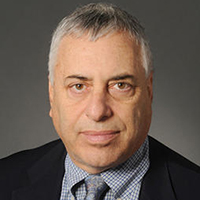
Paul L. Posner
Paul L. Posner, professor and director of the Schar School’s Master's in Public Administration program at George Mason University’s Schar School of Policy and Government, passed away on Wednesday, July 5, 2017, at the age of 70. He is survived by his wife Arlene, daughter Jenny, and two grandsons.
Posner joined the Mason faculty in 2005. Formerly, he was the managing director for strategic issues at the U.S. General Accounting Office (GAO) for 14 years. At the GAO, where he worked for more than 30 years, he was responsible for work on the federal budget and intergovernmental fiscal policy and management. As Posner once stated, “We enter our profession not because it is easy, but because it is hard. When the going gets tough, it is our business to rise to the challenge.”
From 2010-11, Posner was the president of the American Society for Public Administration (ASPA). Janice Lachance, the current president of ASPA, said upon learning of Posner’s passing, “Paul was one of the best people I have ever known and one of the best that public administration has to offer. He was a steadfast friend, an extraordinarily dedicated public servant and he will be missed.”
In addition, Posner served as chairman of the board of the National Academy of Public Administration (NAPA). As noted within NAPA’s announcement, “During his two decades as an Academy Fellow, Paul demonstrated a strong and steadfast commitment to the Academy. … With a focus on effectiveness, he persistently pushed the Academy toward excellence in all that it does.”
His just-published book, Governing Under Stress (January 2017), provides the first definitive examination of the Obama Administration’s economic stimulus program. Coedited by fellow Schar School faculty Timothy Conlan and Priscilla Reagan, the book already has received excellent reviews. This was his second experience with Conlan as a coauthor. The first, The Pathways to Power (2014), represented a capstone for years of work on national policy making processes. His work on federalism includes his book, The Politics of Unfunded Mandates (1998), which won the Martha Derthick Award from the American Political Science Association’s federalism section — which also honored Posner with its Daniel J. Elazar Distinguished Scholar Award (2017) for his contributions to the study of federalism and intergovernmental relations. He won the Best Practices Award (State and Federal Governance Issues) from the National Governors Association Center in 2016.
For Schar School friends and colleagues, Posner was more than an academic and a professional, he was cherished for his human qualities. "Paul has been a dear friend and supportive colleague. He has been steadfastly committed to his research, his teaching, and his public service, as well as a generous mentor to graduate students and junior faculty,” said Professor Regan, a close friend as well as a Schar School colleague. “We will all miss Paul's sense of humor, his good counsel, his leadership, and his warmth."
The Schar School has established a scholarship fund in Posner’s name that will be awarded to qualified MPA students. Posner’s family requests that in lieu of flowers, donations may be made to the “Paul Posner MPA Student Fund.” To donate go to http://advancement.gmu.edu/posnerendowment. Donations should be made payable to the “George Mason University Foundation,” with “Paul L. Posner MPA Scholarship Endowment” noted in the memo line. Donations may be mailed to –
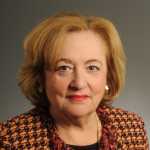
Susan J. Tolchin
(1941–2016)
Susan Tolchin, University Professor emerita, passed away on May 18, at the age of 75. She retired from George Mason University in 2014 after 16 years as the most senior woman faculty member in the School of Public Policy. In 2007, she was the first woman in the history of Mason to be promoted to the rank of University Professor.
Tolchin was the author of 10 books, eight of which were co-written with her husband, Martin Tolchin. Their books were noted for scholarly depth while being written in a style that made them widely accessible to a broad public audience. One of her solo books, The Angry American, published in 1996, is considered to be among the first scholarly analyses of the public’s anger toward government and the implications for the future of political discourse.
Tolchin served on the national board of the Cystic Fibrosis Foundation and was an elected fellow and board member of the National Academy of Public Administration. Among several awards she received, Tolchin was especially proud of the Founders Day Award at New York University, the Marshall Dimock Award from the American Society for Public Administration for the best lead article in the Public Administration Review for 1996, and the Trachtenberg Award for Research from George Washington University.

Frances V. Harbour
(195 –2013)
Frances V. Harbour has taught international relations courses at George Mason University since 1990. These have ranged from American Foreign Policy, International Security, and the History of Chemical and Biological Weapons Arms Control, to International Relations Theory and International Ethics. She is the author of Thinking about International Ethics: Moral Theory and American Foreign Policy, as well as numerous articles on international ethics, and on arms control. She is a former director of the biodefense master's and PhD programs at Mason.
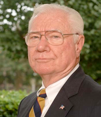
Jim Regan
(1936–2013)
Jim Regan, program director of the Virginia Procurement Technical Assistance Program (PTAP), passed away on Tuesday, April 30. The program, which operates within the Mason Enterprise Center, guides and assists small businesses in the Northern, Central and Hampton Road areas of Virginia to contract with federal, state and local government. Under his direction, the program helped businesses obtain more than 5,500 government contracts totaling more than $5 billion.
Prior to joining George Mason University’s PTAP, Regan held senior business development management positions at Unisys, CSC and IBM.
He was a graduate of the U.S. Naval Academy and U.S. Naval Postgraduate School, where he earned an MS in computer systems management. He served active duty as a naval aviator and retired from the Naval Reserve with the rank of captain.
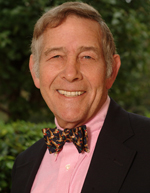
John Petersen
(1940–2012)
John Petersen passed away on Wednesday, April 4. He was an expert on public finance, international finance, and financial institutions. He had a long and distinguished career with the School of Public Policy at George Mason University.
Before he joined Mason, Petersen held positions in a number of government, trade, and private organizations, where he served as an advocate and advisor to the municipal bond industry.
Most recently, he had been appointed as a public member of the Municipal Securities Rulemaking Board, which is responsible for regulating banks and securities dealers in the industry. Petersen also wrote a regular column on “Finance” for Governing magazine. His students and colleagues will miss his insight and camaraderie.
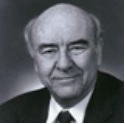
John Nelson Warfield
(1925–2009)
John N. Warfield, professor emeritus of public policy and integrative studies, passed away on November 17, in Sheffield, Alabama.
A prolific scholar, Warfield held two patents and wrote eight books and numerous papers. Among his many honors, Warfield received IEEE’s Third Millennium Medal, an award that recognizes “individuals whose outstanding contributions made a difference to the engineering profession and to the world in general.”
In 2001, Warfield donated his papers to Mason. The papers are housed in University Libraries Special Collections and Archives and have been digitized.
Read the full story: Remembering Professor Warfield
Additional Information:

Seymour Martin Lipset
(1922–2006)
Seymour Martin Lipset, eminent scholar and Virginia E. Hazel and John T. Hazel Jr. Professor Emeritus of Public Policy since 2004 and one of the most respected and acclaimed social scientists in the United States, died December 31, at Virginia Hospital Center of complications from a stroke. He was 84.
Lipset came to George Mason University in 1990 as the Hazel Professor of Public Policy. Among scholars throughout the United States, his appointment was considered by many to be a major coup. Mason’s then Institute of Public Policy was in its infancy and had not yet established itself as one of the university’s major research engines and an academic entity held in high regard. Lipset’s appointment gave the school immense credibility and helped set the tone that it was a scholarly force to be reckoned with.
Read the full story: Remembering Professor Emeritus Seymour Martin Lipset
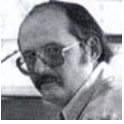
Don Lavoie
(1951–2001)
Don Lavoie, David H. and Charles G. Koch chair of economics in the School of Public Policy, died of cancer Tuesday, November 6, 2001.
A member of George Mason University’s faculty since 1980, Lavoie, 50, enjoyed a reputation as being one of the university’s leading innovators in teaching methods, developing new ways to use software to enhance the learning experience of his students. He was a two-time recipient of Mason’s Distinguished Faculty Award.
Kingsley Haynes, director of the School of Public Policy, praised Lavoie’s contributions to the university. “Don was a gifted and passionate teacher who was respected and admired by his students and colleagues,” he said.
Lavoie’s research focused on the use of knowledge in economics and organizational contexts. He is best known as author of two books published in 1985, Rivalry and Central Planning and National Economic Planning: What is Left? Most recently, Lavoie wrote Culture and Enterprise: the Development, Representation, and Morality of Business.
A resident of Manassas, Lavoie is survived by his wife, Mary, and their three children, John, 16; Mark, 14; and Gabriella, 8.
This article originally appeared in The Mason Gazette (now Mason News) on November 7, 2001.
